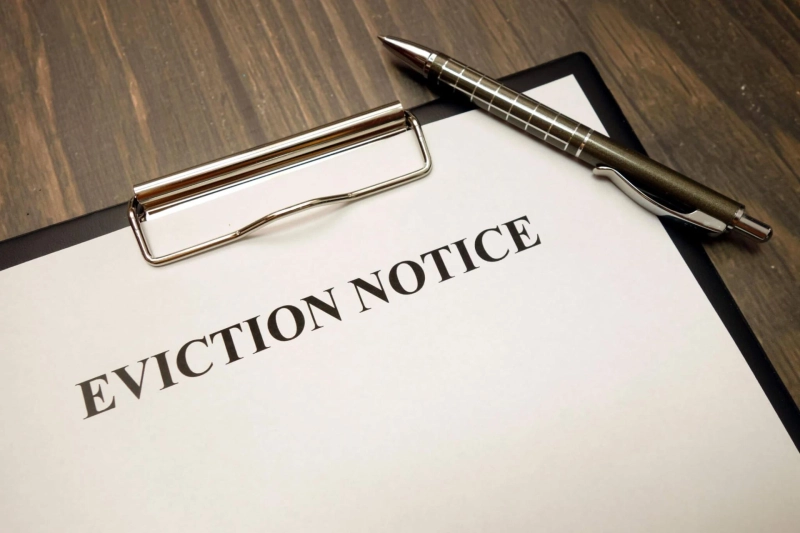Issuing a 14-day notice to vacate in New York State can be a stressful and time-consuming process for both landlords and tenants. This notice is typically used when tenants fail to pay rent or violate lease terms, giving them a short period to either remedy the situation or vacate the premises. However, with proactive management strategies, landlords can often avoid reaching this point. Here are some practical tips to help you maintain positive tenant relationships and prevent the need for a 14-day notice to vacate.
Clear Communication from the StartSetting Expectations: Begin by setting clear expectations during the lease signing process. Ensure that tenants fully understand the lease terms, including rent due dates, maintenance responsibilities, and rules regarding property use. Providing a detailed tenant handbook can also help clarify expectations.
Open Lines of Communication: Establish and maintain open lines of communication. Encourage tenants to reach out with any issues or concerns and respond promptly to their inquiries. Being approachable can help resolve minor problems before they escalate into major conflicts.
Thorough Tenant ScreeningBackground Checks: Conduct thorough background checks on potential tenants. This includes checking credit scores, rental history, and criminal records. A solid screening process can help you select reliable tenants who are more likely to adhere to lease terms.
References: Contact previous landlords and employers to verify the applicant’s reliability and stability. Positive references can provide additional assurance that the tenant will be responsible and respectful.
Regular Property InspectionsScheduled Inspections: Conduct regular property inspections to identify and address maintenance issues early. This proactive approach helps maintain the property’s condition and ensures that tenants are complying with lease terms.
Documenting Condition: Document the property’s condition during inspections and share findings with tenants. This transparency can motivate tenants to take better care of the property and rectify any issues promptly.
Prompt Maintenance and RepairsTimely Response: Address maintenance requests promptly. Quick responses to repair needs not only keep the property in good condition but also demonstrate your commitment to tenant satisfaction.
Preventative Maintenance: Implement a preventative maintenance schedule to tackle issues before they become major problems. Regularly servicing HVAC systems, plumbing, and other critical infrastructure can prevent costly repairs and tenant dissatisfaction.
Fair and Consistent Rent CollectionClear Payment Policies: Establish clear rent payment policies and communicate them to tenants. Offer multiple payment methods, such as online payments, to make it easier for tenants to pay rent on time.
Grace Periods and Late Fees: Implement reasonable grace periods and late fees. While it’s important to enforce rent collection policies, showing some flexibility in difficult times can build goodwill with tenants.
Building Positive RelationshipsCommunity Engagement: Foster a sense of community by organizing tenant events or creating common spaces for social interaction. A positive living environment can increase tenant satisfaction and reduce turnover.
Appreciation and Recognition: Show appreciation for responsible tenants. Simple gestures, such as holiday cards or occasional appreciation events, can strengthen landlord-tenant relationships.
Addressing Issues EarlyEarly Intervention: Address tenant issues early and directly. If you notice a problem, such as late rent payments or noise complaints, communicate with the tenant promptly to find a resolution. Early intervention can prevent minor issues from escalating.
Mediation: In cases of serious disputes, consider mediation before issuing a 14-day notice to vacate. Mediation can help both parties reach a mutually agreeable solution without resorting to legal action.
Flexibility and UnderstandingFlexible Payment Plans: Offer flexible payment plans for tenants facing temporary financial hardships. This can help tenants catch up on rent without the threat of eviction.
Understanding Personal Circumstances: Show understanding and empathy for tenants’ personal circumstances. Life events such as job loss or illness can impact a tenant’s ability to pay rent or adhere to lease terms. Being considerate in these situations can foster long-term loyalty and cooperation.
Conclusion
By adopting these proactive strategies, landlords in New York State can significantly reduce the likelihood of having to issue a 14-day notice to vacate. Effective communication, thorough tenant screening, regular maintenance, and building positive relationships are key to maintaining a harmonious landlord-tenant relationship. Addressing issues early and showing flexibility can also go a long way in preventing conflicts and fostering a positive rental experience for both parties.
Implementing these tips not only helps in avoiding the 14-day notice to vacate New York State but also contributes to a more stable and profitable rental business. By focusing on proactive management and tenant satisfaction, landlords can create a thriving rental environment that benefits everyone involved.



